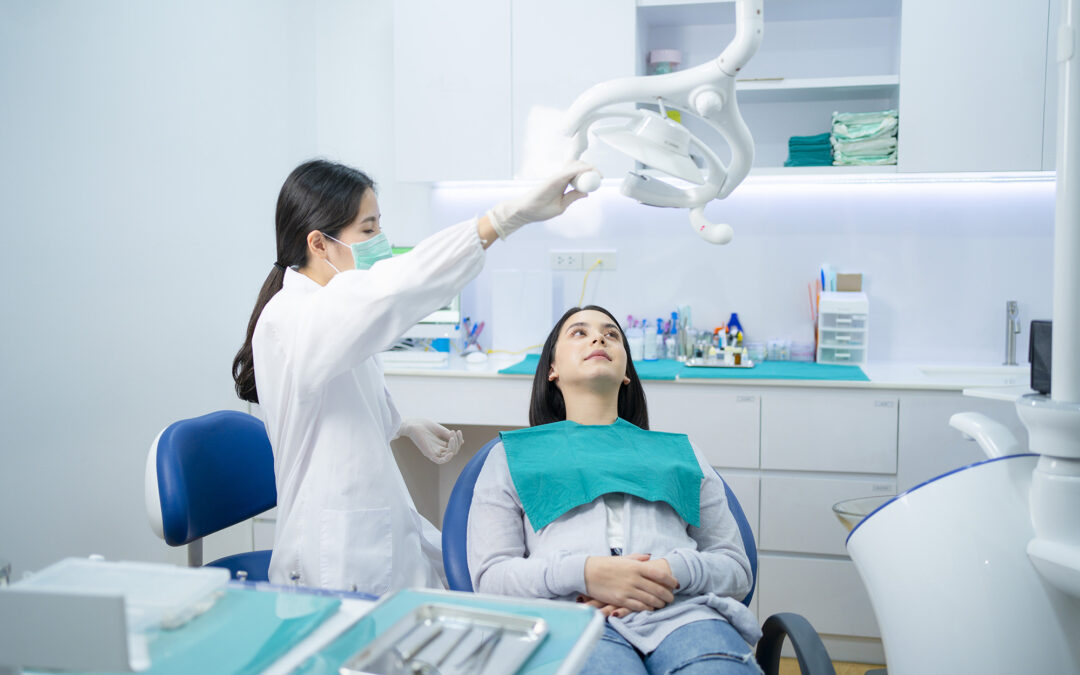How many times have you had a sore jaw or mouth because of a throbbing sensation in your teeth? Perhaps you’ve bitten into a piece of chocolate and immediately winced at the sharp pain that’s flared up in one particular tooth?
Toothache can be a nasty and annoying experience, and unfortunately, we’ll likely all suffer from it at some point in our lives. Various factors can contribute to tooth pain, and it can be difficult to know how to treat it unless you know exactly what’s causing it.
It might be tempting to just grin and bear the pain in the hopes that it’ll go away, but this can do more harm than good. If left unchecked, toothache can develop into something far more worrying for your teeth. That’s why you must try and treat it straight away.
In the blog below, we’ll take a look at some of the reasons as to why you might be suffering, as well as how to calm your toothache and stop the pain altogether.
How to get rid of toothache?
Depending on the cause and severity of your toothache, there are various treatments you can try to relieve yourself of the pain.
FAST PAIN RELIEF FOR TOOTHACHE
If you’re looking for some quick home remedies for your toothache, there are a few options to try out:
- Take some over-the-counter painkillers to reduce the pain
- Place an ice pack in a towel on your cheek
- Avoid drinking sugary/acidic drinks, or eating/drinking very hold and cold food and drinks
- Brush and floss your teeth thoroughly
- Get in touch with our team if the pain continues
To start with, it’s best to take some over-the-counter painkillers to reduce the pain, such as paracetamol. You can also use an anaesthetic gel for a similar effect. Likewise, placing clove oil over the painful area of your tooth or mouth can relieve some of the pain.
If it’s your jaw or mouth that’s throbbing, keep it cold by placing an ice pack or bag of frozen vegetables wrapped in a towel on your cheek.
You should avoid drinking any sugary or acidic drinks, as these can aggravate the toothache even more. You should also avoid eating and drinking very hot or very cold food and drinks.
Carry on with your usual dental hygiene routine, making sure you brush and floss thoroughly. If your tooth is sensitive to the brushes of your toothbrush, then rub the toothpaste directly onto it, rather than aggressively brushing it.
What can I do for severe tooth pain?
It’s always best to try the above home remedies first when it comes to relieving toothache. However, if your toothache:
- Lasts more than two days
- Doesn’t go away after taking painkillers
- Causes a high temperature, pain when you bite, sore gums and/or a bad taste in your mouth
- Causes your cheek or jaw to become swollen
Then you must see a dentist for treatment. If your toothache causes any of these, then it’s likely that you could have a tooth infection or another serious dental problem.
How to treat toothache for kids
Toothache can be treated in kids the same way it is with adults. You can relieve the pain by trying one of the above home remedies and taking painkillers suitable for the child’s age.
If these do not work, take your child to the dentist for a check-up as soon as possible.
If you have any concerns about you or your child’s teeth, or you would like some advice on pain management and dental care. Please get in touch with our team, who would be happy to speak to you about your options.
Why do I have toothache?
There can be many reasons as to why you might be suffering from toothache. Toothache problems are often caused by dental infections or decay.
WHAT CAUSES TOOTHACHE?
Tooth infections and decay usually come as a result of poor dental hygiene. Regularly brushing and flossing your teeth ensures that you remove small particles of food that build up in your mouth, preventing the possibility of cavities. Reducing the amount of sugary foods and drinks you consume also helps to avoid them.
However, other factors can contribute, such as:
- A damaged filling: Fillings can be damaged over time and can either chip, crumble, crack, wear away or pop out. This allows bacteria to get into the damaged filling and infect your tooth.
- A tooth abscess: An abscessed tooth is when the pulp inside the tooth dies. This dead tissue creates a pocket of bacteria and pus which can infect the tooth and cause toothache.
- Fractured tooth from an injury: You can suffer from a tooth fracture in a fall or if you get hit in the jaw/face with something hard. This means that your tooth will crack or split open, leaving room for bacteria to infect it.
- Infected gums: Better known as gingivitis, this is when the gums around your teeth become infected. Bacteria builds up around the roots of your teeth which in turn can result in a toothache.
- Teeth grinding: Grinding your teeth can cause pain in your tooth, jaw or gum. It can also cause tooth erosion which increases the risk of cavities and toothache.
- Loose crown: A loose or damaged tooth crown can trigger a throbbing toothache.
Toothache and pregnancy
Toothache can be pretty common when you’re pregnant. This is because as the baby develops in the womb, the body’s hormone levels increase. This, in turn, can cause toothache due to:
- A buildup of plaque due to hormonal fluctuations
- Stomach acid decaying your teeth from regular morning sickness
- Increased probability of gum disease during pregnancy
If you’re looking to prevent the chances of you developing toothache whilst you’re pregnant, you can do so by increasing your daily oral care routine. Paying close attention to your dental health will help to keep toothache and decay at bay. And remember, you’re entitled to free NHS dental treatment if you’re pregnant when you start your treatment and for 12 months after your baby is born.
Toothache and anxiety/stress
You might not realise it, but anxiety and stress can also be a cause of toothache. People who suffer from anxiety or who are stressed are much more likely to grind their teeth.
Not only is teeth grinding detrimental to your oral health short-term, but it can also cause long-term dental problems. You can permanently wear down your teeth and cause irreparable damage to your teeth’s protective enamel.
Damaged teeth from grinding can allow bacteria to get into the tooth and infect it. Thus, causing toothache.
Toothache and sinus infection
A sinus infection usually happens when the tissue surrounding your sinuses become swollen and inflamed. Your upper rear teeth (which are the closest to your sinuses) are put under pressure, and you can start to feel some pain/discomfort as a result of this inflammation.
Toothache and wisdom teeth
Another common cause of toothache comes from your wisdom teeth. Wisdom teeth are the last of your teeth to ‘break through’ the gums, which in turn can cause a lot of pain and discomfort.
Why is toothache so painful?
Most toothaches are usually caused by either an infection or inflammation of the tooth. This is better known as pulpitis.
Inside each tooth, there is a soft pink pulp that helps to keep it healthy and functional. This pulp is where you’ll find the nerves, blood vessels and tissue that make up your tooth. When you have a cavity or crack in the tooth, germs can get inside and irritate/infect the tooth’s sensitive pulp nerves. This is just one of the factors that cause the painful sensation from toothache.
Toothache doesn’t just cause throbbing pain in your mouth. Some other symptoms also include:
- A sharp pain when you bite down
- Painful sensation when you eat something sweet
- Sensitive teeth
- Tenderness in your mouth
- Aching in your jaw
- Swelling
- Redness
- Bad taste and/or smell in the mouth
- Pus or a white fluid
- A fever
Toothache affects the susceptible nerves within your teeth; this is why toothache is so painful. Thankfully with good oral hygiene, many causes of a toothache can be avoided. This is why it is important to brush, floss, and use mouthwash twice a day and have regular checkups with your dentist.
Suffering from a toothache? Get a check-up with Rhodes Street Dental
If your toothache has not gone away after two days, is not responding to painkillers, or is causing other symptoms, then you must see a dentist so that they can offer you the best treatment possible.
For over 50 years, Rhodes Street Dental has been providing expert dental care to the local communities of Wythenshawe, Altrincham, Hale, Heald Green and Timperley. Our mission is to provide the highest standards of dental care to all of our patients.
If your toothache is getting worse and you need help diagnosing its cause, our dentists and hygienists will be happy to help you. Whatever your enquiry, we’ll be happy to discuss all treatments available with you, ensuring we can offer you a solution that suits all your wants and needs. Feel free to get in touch today!





